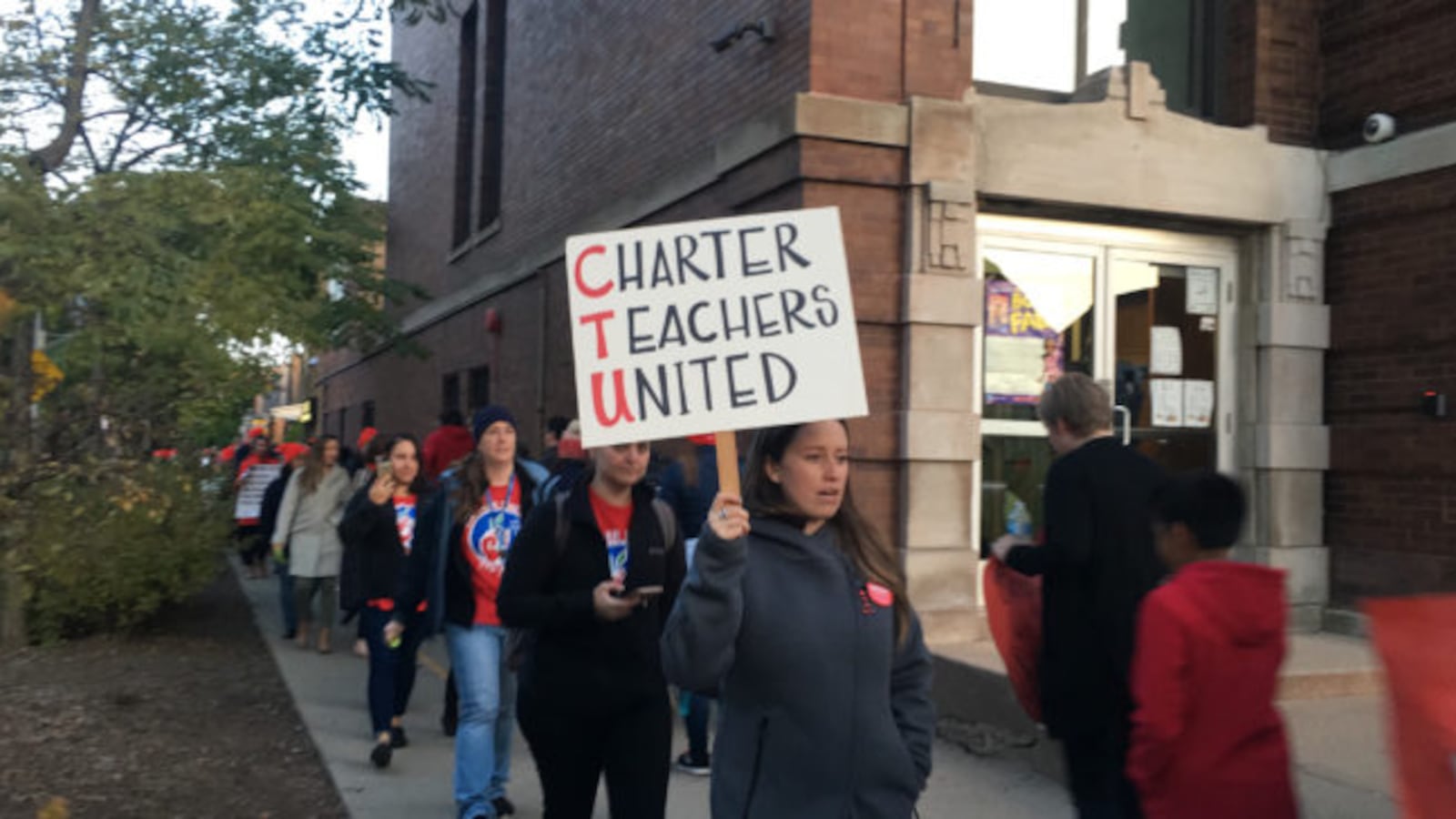Caroline Rutherford is an art teacher at Donald J. Marquez Elementary, which is run by the charter operator Acero Schools. When Acero teachers take a strike authorization vote next Tuesday, she said she’ll participate because she feels it is the only way to push management to recognize her needs in the classroom.
“We don’t want 32 kids in our classroom,” said Rutherford, who teaches kindergarten through eighth grade.
Teachers from several charter operators, including Acero and Chicago International Charter School, announced Wednesday that strike authorization votes are coming next week because contract negotiations have stalled.
At issue in the contract negotiations are teacher pay, class sizes, and better special education services. The Chicago Alliance of Charter Teachers and Staff, which represents 34 charter schools in Chicago, said 19 will hold votes to authorize a strike against the companies that run the schools. Acero teachers will take their strike authorization vote on Tuesday, while Chicago International Charter Schools teachers will take votes on Nov. 2.
In a statement, Helena Stangle, chief external affairs officer of Acero, told Chalkbeat that the company would do its best to avoid a strike: “We have worked in earnest to reach an agreement that provides a reasonable and competitive compensation package to our teachers and staff, while maintaining the best possible educational outcomes for our students.”
Acero, formerly named UNO, is the largest unionized charter-school operator in Chicago Public Schools. Its contract with teachers expired Aug. 2, but was extended until Oct. 3.
Charter unions are a relatively new phenomenon. Chris Baehrend, who is chair of the charter union, said that charters have never gone on strike before, but they are ready for this to be the first time. “We are using our collective action to put the industry in its place.”
At a press conference Wednesday outside the Acero board meeting, teachers told Chalkbeat they want to see charter management fees diverted for classroom use. Sarah Jones, a second-grade teacher at Octavio Paz Elementary, part of the Acero network, says that her students spend recess running up and down the sidewalk.
“Really we’re just looking for the money that the network has to be put into our classrooms. We want a playground,” said Jones. “I teach second grade, they desperately need a place to play. I am hoping that is something we can get.”
For Luz Serrano, who teaches ninth-grade social studies at Acero’s Major Hector P. Garcia M.D. High School, the issue is smaller class sizes.
“There is not enough time, and there are not enough adults,” she said, “even with assistance from special ed teachers, even with assistance from paraprofessionals, to be able to reach all the students.”
Teachers from the 34 charter schools voted to join the Chicago Teachers Union last summer but each school is organized under a separate contract. CTU President Jesse Sharkey said Wednesday that charter teachers and paraprofessionals were “woefully underpaid and overworked” and highlighted “a perilous lack of funding for basic services.”
The president of the Illinois Network of Charter Schools, Andrew Broy, said in a statement to Chalkbeat that he was disappointed to hear about the call for a strike authorization vote, and that the reasoning for the vote was erroneous.
“Charter public schools continue to be underfunded relative to other public schools,” Broy said. “INCS is therefore saddened by CTU and ChiACTS leadership in moving to authorize a strike vote, potentially disrupting the lives of thousands of students and their families.”

